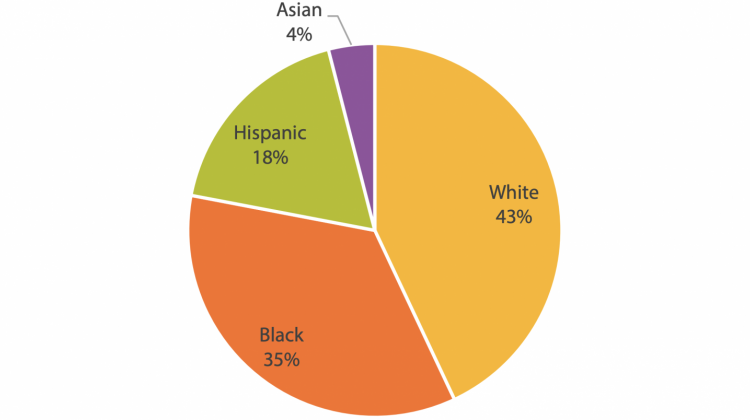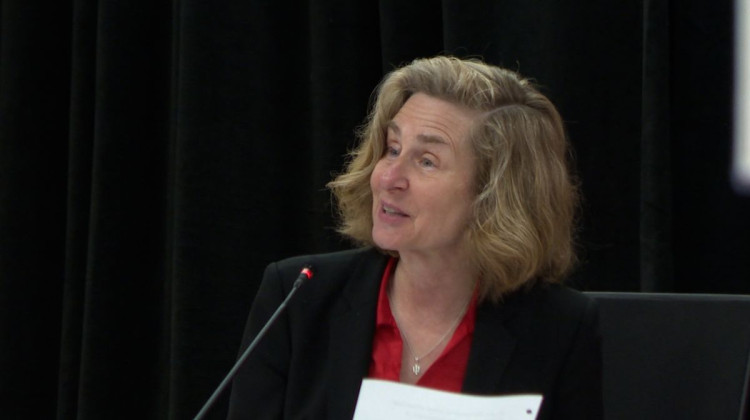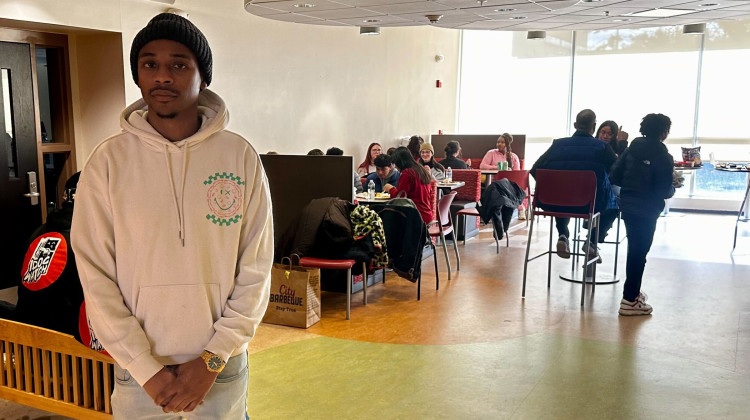
Child population by race and ethnicity in Marion County, according to the Marion County Commission on Youth. More than 235,000 children ages 0-17 years live in Marion County.
Marion County Commission on YouthThe Marion County Commission on Youth issued a report on some of the top issues impacting students outside of school, and how that affects students’ academic success.
The assessment, Closing the Gap Between School & Community Partners, describes ways students’ mental health is impacted by things such as chronic absenteeism, trauma and violence and social media, and how those factors impact their school performance.
According to the Indiana Youth Institute, 5.4 percent of Hoosiers ages 3-17 have been diagnosed with depression at some point in their life. This is 1.2 percent above the national average.
“Our schools are so resourceful and have continued to provide outstanding educational opportunities to youth while evolving to support their social and emotional development over the past decade,” Kate Roelecke, MCCOY’s Early Intervention & Prevention Director wrote in a press release. “It’s time for us as a community to recognize the critical role schools play in youth development and ensure that we are establishing the partnerships and investing the resources schools need to provide equitable learning opportunities to all children in Marion County and Central Indiana.”
Results
The Education Action Team of Marion County’s Early Intervention Planning Council aims to prevent children from entering the child welfare or juvenile system. They began researching this topic in 2018.
The survey for the report was completed by 354 people -- school staff, social workers, and community members -- from 28 different Marion County schools. More than 300 people said poor academic performance and disruptive behavior are results of students struggling with issues such as mental health, food insecurity, child abuse/neglect or access to healthcare. The data showed that students in townships and charter schools are more likely to have these behaviors compared to those in suburban or private schools.
The majority of respondents said schools need more specialized staff to address students’ needs, but said a lock of funding prevents schools from doing so.
Recommendations
Since the challenges impacting students outside of school also affect them in a classroom, researchers recommend schools implement a community schools model -- an evidence-based equity learning improvement strategy. This includes the use of strong partnerships, coordination of community resources, family and community engagement and a shared vision of student success.
Fifty percent of roughly 250 respondents said the school-community relationship helped meet students’ needs.
The practice focuses on a whole child approach to address a students’ social and emotional health within a safe environment. Researchers also recommend teaching using a challenging, personalized curriculum so students are prepared for life after graduation.
The model also encourages more family engagement, especially in response to positive academic results, in order to build trust between families and schools. The report suggests parents and guardians become involved in their students’ education before a problem arises.
Contact WFYI education reporter Elizabeth Gabriel at egabriel@wfyi.org. Follow on Twitter: @_elizabethgabs.
 DONATE
DONATE








 Support WFYI. We can't do it without you.
Support WFYI. We can't do it without you.